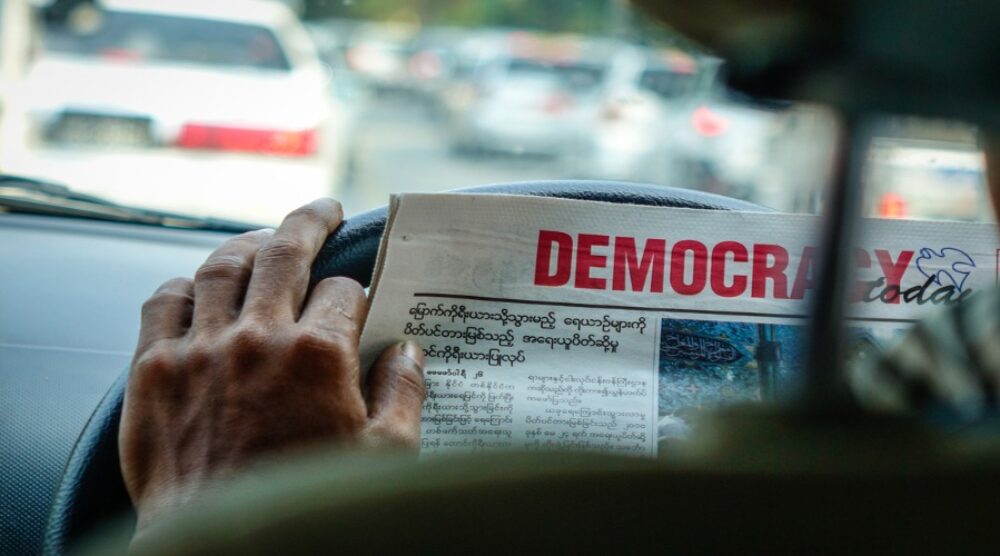The recently published book Governance and Democracy in the Asia-Pacific: Political and Civil Society, explores the theoretical and empirical relationship between democracy and governance in the Asia-Pacific region. The book addresses a major theoretical problem and a gap in the academic and policy-related literature on governance and democracy in the Asia-Pacific region. Multilateral institutions, international NGOs, and many in the academic community have operated with some doubtful assumptions.
The first is that all good things go together: hence if one is able to promote good governance, one is simultaneously able to promote both democracy and development and vice-versa. Another is that civil society plays a key role in bringing about this change for good. Civil society is typically viewed as a major force in the fight against corruption, the promotion of good governance, and the consolidation of democratic regimes. Good governance is also promoted by reforms that aim to strengthen political society in ways that are said to improve the quality of democracy.

The book questions these assumptions in a thematic way that addresses the theoretical tension between governance and democracy and discovers how this tension is played out in political and civil societies in the Asia Pacific region. Specifically, it examines the character, structure, and current trajectories of polities in the Asia-Pacific, democratic or otherwise, to demonstrate that the role of civil and political society has been quite different from what has commonly been assumed within the international community and by many academics.
Governance has become a buzzword of political and economic development in recent years. Yet definitions of governance vary considerably across different fields of research and there is no commonly accepted academic or policy-wide definition. At the same time, the way that political scientists understand democracy has changed significantly since the end of the Cold War. That the relationship between good governance and democracy is disputed can be traced to their conceptualisation and operationalisation. There is considerable variation in the extent to which the understanding of good governance overlaps with democracy. Further, the indicators of good governance—and the commonly used empirical measures and data sources used for each—are often inappropriate, they overlap, or they are imprecise.
Relations between democracy and governance produce a range of patterns in the Asia-Pacific that require some explanation. In some settings, civil and political society has acted as a democratising force but has so far failed to promote good governance (Indonesia, Philippines and Thailand). In other settings—especially in societies influenced by Confucian values—good governance has been encouraged in the absence of democratic change (Singapore, China, and perhaps Malaysia). In cases where political society has been monopolised by militaries, civil society has struggled to promote democracy, while governance nevertheless has been redefined and promoted (Burma and Fiji); and in a fourth group of countries (Japan, South Korea and Taiwan) civil and political society has indeed promoted both democracy and good governance but only after prolonged periods of development mostly under military or non-democratic rule. Other countries, of course, may display a combination of some of the attributes above, although particular circumstances may not allow them to easily fit into these categories.
In the Asia-Pacific region, historical legacies and social structures dispose civil and political society to interact in different ways, producing outcomes that may be reinforced by institutions that then hold implications for democracy and governance. These outcomes are derived from conditions that are delicately intertwined and are influenced by, and have influence upon, colonial legacies, religion, ethnic pluralism, the role of the military, the monarchy, bureaucratic capacities, constitutions, party systems, elections, executive-legislative relations, and the judiciaries.
Liberal democracy and effective governance often do not seem to go well together in the Asia- Pacific, and large gaps may appear between the two and become destabilising. Good or effective governance is largely a matter of measuring performance outcomes, while democratic governance is a matter of measuring participant inputs. If people in Asia-Pacific societies have their own criteria for what constitutes political legitimacy in their regime, then government effectiveness becomes the major driver of what they understand to be ‘good governance’.
In fact, support for democratic regimes in the region fluctuates widely in response to changing perceptions of these regimes’ performance, levels of corruption, and the trustworthiness of their politicians. Citizens in East Asian democracies want not just democracy as such, but more accountability, more responsiveness, more transparency, and less corruption. Democratic consolidation only seems possible after substantial improvements in people’s material lives and advances in economic development.
The book examines this complex network of underlying conditions and the relations between various political institutions, enabling an exploration into the nature of civil
civil and political society in the region. It includes theoretical and empirical chapters on democracy and governance in the Asia-Pacific, as well as contributions focusing on political and civil society in a number of countries where the tensions between democracy and governance are particularly strained. These include Singapore, Thailand, the Philippines, Cambodia, Myanmar, China, and a number of Pacific Island states. The evidence produced in each chapter highlights the tension between governance and democracy and suggests that for various reasons the Asia-Pacific region struggles to meet the demands of governance-based policies derived from misguided assumptions. Governance and Democracy in the Asia-Pacific: Political and Civil Society, edited by Stephen McCarthy and Mark R. Thompson is available to read and purchase here.
AUTHOR
Stephen McCarthy, School of Government and International Relations and member of the Griffith Asia Institute.








